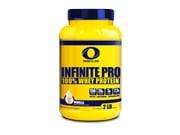

Carbs Before Resistance Exercise: Are they Necessary?
Table of Contents
Carbs Before Resistance Exercise: Are they Necessary?
By Robbie Durand
If there has ever been a debatable topic in the world of bodybuilding, it’s the carb debate. Some lifters swear by them and others feel that cutting back on carbs makes them feel better. Many lifters are on low carb diets, and it’s not uncommon for many bodybuilders to go to the gym on an empty stomach. Whether not you need carbs during your training may depend on many factors, such as:
- How many carbohydrates you consume throughout the day.
- How long you train
- Your training intensity.
- How often you train (i.e., once or twice a day)
- What body part you are training
For those that are looking for an excellent review of the literature on carbs and resistance training, check out the article in the Journal of Strength and Conditioning Research titled, “Carbohydrate Supplementation and Resistance Training.”
Glycogen Depletion, Not Just for Aerobic Exercise
There is no question that carbs are needed for increased performance in aerobic-based exercises such as cycling, soccer, and long distance running, and bouts of exercise in which you are training for longer than a few hours, but the validity of carbohydrate use for resistance exercise is a little more confusing.
Traditionally, it has been thought that short duration high-intensity exercise is primarily supplied with energy from the ATP-PC system, which last 8-10 seconds, with glycogen usage providing minimal amounts of energy. So most lifters are going to be primarily using the ATP-PC system and some glycogen during resistance exercise. Low carb diets can result in reduced muscle glycogen and can result in reduced muscle performance.
In other sports that require high-intensity exercise, reductions in muscle glycogen concentration have led to accentuated exercise-induced muscle weakness and strength. Surprisingly, several studies have reported that resistance training bouts can significantly decrease muscle glycogen stores.
Current research strongly suggests that resistance training, especially using large–muscle mass free-weight exercises performed with high training volumes with moderate loads, is partially dependent upon muscle glycogen stores. The amount of glycogen used in these exercises also appears to be related to the total amount of work accomplished and the duration of the resistance-training bout.
Here is a list of a few studies documenting the role of glycogen usage and resistance exercise:
- One study reported that three sets of isokinetic leg extensions performed can reduce the muscle glycogen content of the thighs by 17%. Additionally, in the same investigation a multiple-set resistance-training session (back squats, speed squats, 1-leg squats) performed at 65, 45, and 10% of 1 repetition maximum (1RM) back squat resulted in a 26.7% decrease in muscle glycogen of the vastus lateralis. So study found that large muscle mass exercises such a squat reduced muscle glycogen more than single joint exercises such as leg extensions.
- Another study reported that doing more sets (i.e. five sets of 10 repetitions of knee extensions performed at 60% of 1RM.) resulted in a 40% reduction in muscle glycogen.
- Another study in which subjects performed six sets of 6 repetitions of leg extensions performed at 70 % of a 1-RM resulted in 39% muscle glycogen whereas training with 35% of 1RM led to a 38% reductions in glycogen.
The results of these studies indicate that muscle glycogen is dependent upon the total amount of work accomplished.

Carbohydrate Supplements and Resistance Exercise
There is some evidence to suggest that consuming a carbohydrate based supplement can preserve muscle glycogen levels during exercise. For example, the research by Haff et al. reported that a carbohydrate beverage preserved muscle glycogen levels when ingested before and every 10 minutes throughout a free-weight resistance-training bout that took ~39 minutes. The training session consisted of 3 sets of 10 repetitions of back squats (65% of 1RM), speed squats (45% of 1RM), and 1-leg squats (10% of 1RM) and elicited a 26.7% decrease in the muscle glycogen content of the vastus lateralis with the placebo treatment. However, the training bout only elicited a 13.7% decrease in muscle glycogen content when a carbohydrate supplementation regimen was employed.
In a follow-up study by Haff et al. reported that carbohydrate supplementation can increase the amount of work that can be performed during 16 sets of 10 repetitions of isokinetic leg extensions performed. So it seems that if you are are performing high volume exercise, with moderate intensity such as what many bodybuilders use, a carbohydrate-based supplement may boost performance in the gym.
Volume: The Key Factor as to Whether You Need a Carbohydrate-Based Supplement
The biggest differences in the studies reporting positive effects of carbohydrates and those studies finding no difference seem to be based around the volume of exercise performed. For example, positive studies showed ergogenic effects with carbohydrate based supplements when the exercise bout lasted longer than an hour. In contrast, the studies that failed to demonstrate an ergogenic effect lasted less than 39 minutes. Thus, it is possible that the duration of the activity influenced the ergogenic effectiveness of the carbohydrate supplement.
The three studies that demonstrated an ergogenic effect of carbohydrate supplementation all lasted longer than 55 minutes and required the subjects to perform high-volume work with moderate loads over that time frame. Additionally, large-mass exercise may stimulate a greater amount of glycogen loss in a number of muscles (not just the prime movers), allowing for an increased ergogenic benefit from carbohydrate supplementation. If you are going to train arms, then you don’t need a carbohydrate beverage before exercise but if your training legs and doing squats or deadlifts than a carb based supplement will fuel your workouts better.
The ingestion of liquid carbohydrates prior to, during, and after exercise may serve to promote a faster recovery, which may enhance subsequent exercise and training sessions. Additionally, the implementation of carbohydrate supplementation prior to and during a resistance-training session appears to offer some ergogenic benefit, through increasing work output when the athlete is performing high-volume training with moderate loads.
| MACDOUGALL, J.D., G.R. WARD, D.G. SALE, AND J.R. SUTTON. Biochemical adaptation of human skeletal muscle to heavy resistance training and immobilization. J. Appl. Physiol. 43:700– 703. 1977. |
ROBERGS, R.A., D.R. PEARSON, D.L. COSTILL, W.J. FINK, D.D. PASCOE, M.A. BENEDICT, C.P. LAMBERT, AND J.J. ZACHWEIJA. Muscle glycogenolysis during differing intensities of weight resistance exercise. J. Appl. Physiol. 70:1700–1706. 1991.
TESCH, P.A., E.B. COLLIANDER, AND P. KAISER. Muscle metabolism during intense, heavy-resistance exercise. Eur. J. Appl. Physiol. 55:362–366. 1986.
TESCH, P.A., L.L. PLOUTZ-SNYDER, L. YSTRO¨M, M. CASTRO, AND G. DUDLEY. Skeletal muscle glycogen loss evoked by resistance exercise. J. Strength Cond. Res. 12:67–73. 1998.
HEPBURN, D., AND R.J. MAUGHAN. Glycogen availability as a limiting factor in performance of isometric exercise. J. Physiol. 342:52P–53P. 1982.
HAFF, G.G., A.J. KOCH, J.A. POTTEIGER, K.E. KUPHAL, L.M. MAGEE, S.B. GREEN, AND J.J. JAKICIC. Carbohydrate supplementation attenuates muscle glycogen loss during acute bouts of resistance exercise. Int. J. Sport Nutr. Exerc. Metab. 10:326–339. 2000.
HAFF, G.G., C.A. SCHROEDER, A.J. KOCH, K.E. KUPHAL, M.J. COMEAU, AND J.A. POTTEIGER. The effects of supplemental carbohydrate ingestion on intermittent isokinetic leg exercise. J. Sports Med. Phys. Fitness 41:216–222. 2001.
Haff GG, Lehmkuhl MJ, McCoy LB, Stone MH. Carbohydrate supplementation and resistance training. J Strength Cond Res. 2003 Feb;17(1):187-96. Review.
Conley MS, Stone MH. Carbohydrate ingestion/supplementation or resistance exercise and training. Sports Med. 1996 Jan;21(1):7-17. Review. Jeukendrup AE, McLaughlin J. Carbohydrate ingestion during exercise: effectson performance, training adaptations and trainability of the gut. Nestle NutrInst Workshop Ser. 2011;69:1-12; discussion 13-7. doi: 10.1159/000329268. Epub 2012 Jan 18. Review.

















